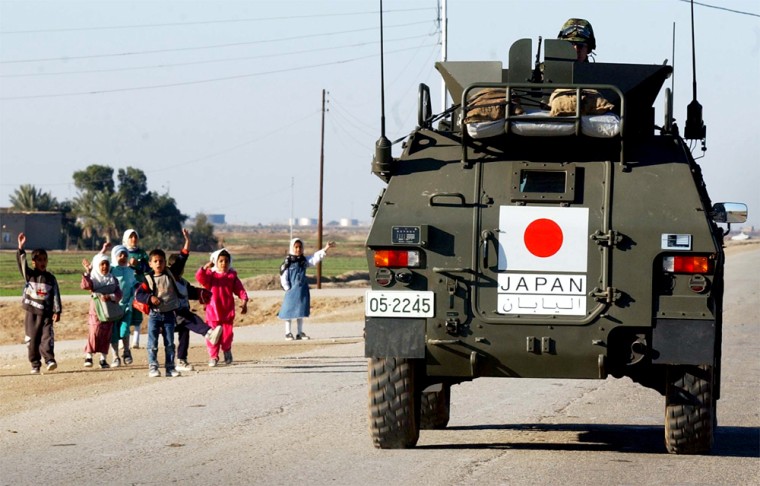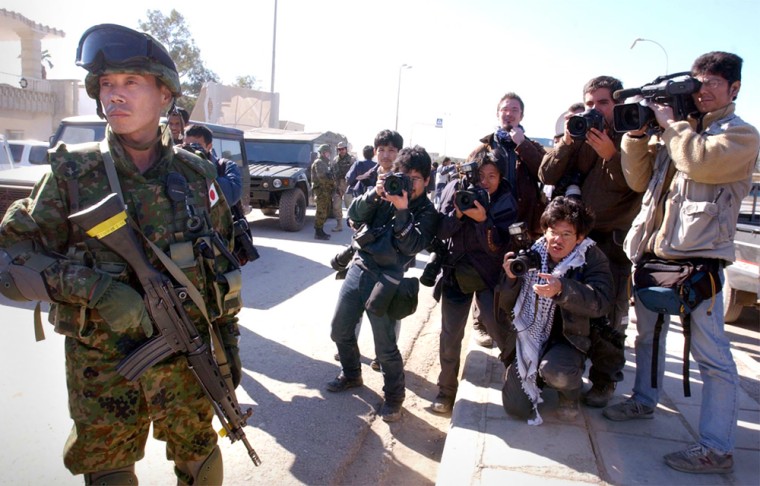Eager Japanese troops quickly launched into their historic mission in Iraq on Tuesday, visiting the site of their proposed camp and waving politely as they were cheered by delighted Iraqi onlookers.
Four Japanese military vehicles, the national flag emblazoned on the side, sped through the dusty streets of Samawa shortly after dawn on their way to a barren stretch of land where they plan to set up base and start work soon.
An advance team of around 35 soldiers arrived in southern Iraq in a blaze of publicity Monday, with Japanese and local media intent on giving blanket coverage to the first deployment of Japanese troops to a combat zone since World War Two.
The group is expected to spend a couple of weeks checking on security in Samawa and assessing the humanitarian needs of the local population before calling for a wave of reinforcements from neighboring Kuwait.

By March, up to 1,000 members of the Self-defense Force, as Japan’s army is called, are expected to be deployed in Iraq, carrying out humanitarian and reconstruction work, including a water purification project, but having no combat role.
The dispatch has caused huge controversy at home, with the Japanese population largely anti-war and the country’s constitution banning its troops from hostile engagement.
Japanese forces have been involved in peacekeeping missions in Cambodia, Rwanda and other trouble spots since 1992, when the laws on deployment were softened slightly.
But the operation in Iraq is a major step up from those activities and it is a surprise for ordinary Japanese to see images of their soldiers bearing weapons and engaged in duties in a country that many consider still to be at war.
Pop-star welcome
In hot pursuit of the advance party was a throng of Japanese media. Television cameramen leaned out of car windows as they raced alongside the army convoy, desperately trying to capture every moment.
Also excited were the townspeople of Samawa, about 180 miles south of Baghdad. Men and young children, many dressed in traditional dishdasha robes and keffiyah headscarves, waved and gave the thumbs up at the smart-looking Japanese troops, shouting “Japanese very good!” as their convoy passed.
Samawa, a rundown market town on the banks of the Euphrates, is in desperate need of jobs and many locals believe the arrival of the Japanese will herald a golden age and a postwar technology boom.
Lieutenant Colonel Masahisa Sato, the commander of the advance team, played down those heady expectations Tuesday, telling reporters his force was on hand only to offer humanitarian assistance to the people of Samawa.
“We are just here to help as much as we can, and we are glad to be here,” he said as he surveyed a flat, muddy expanse by a dirty canal that will soon become his base and the site of the water purification project.
An old man in a small boat drifting along the canal stared up at the Japanese soldiers in their crisp uniforms. Confused by all the attention, he shouted out to Iraqis standing nearby: "Who on earth are they?"
